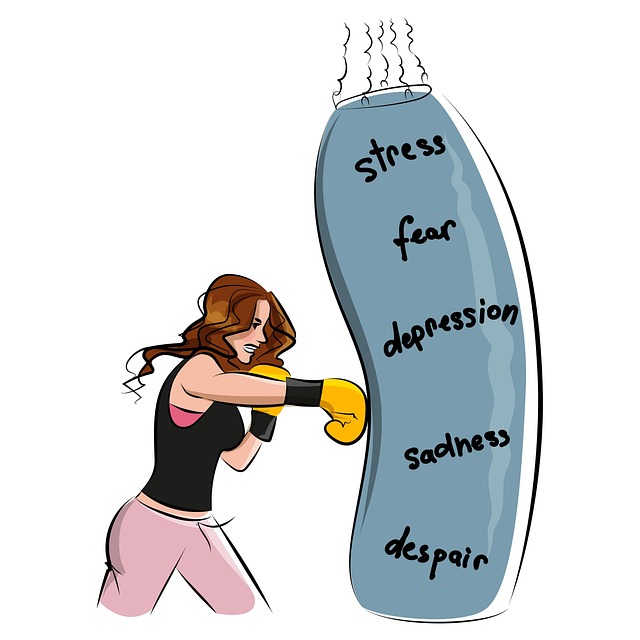Substance abuse linked to chronic pain, depression, or trauma is a complex health crisis with significant risks to both physical and mental well-being. Effective risk reduction requires tailored interventions like Littleton Chronic Pain Therapy, comprehensive policies, and proactive depression prevention strategies. Adopting healthier lifestyle changes, such as regular exercise and self-care practices, reduces risks. Medical interventions from Littleton Chronic Pain Therapy centers combine medication and therapy for pain management. Community support systems foster open dialogues about mental wellness through journaling exercises and conflict resolution techniques, reducing stigma and providing early intervention. Programs focused on burnout prevention holistically address physical and mental health needs, empowering individuals to manage chronic pain without relying on substance abuse.
In a world where substance abuse poses significant risks, understanding and implementing effective risk reduction strategies are paramount. This article guides you through a comprehensive approach to mitigating these dangers, focusing on various aspects of care. From recognizing the signs of substance misuse to exploring lifestyle changes, medical interventions like Littleton Chronic Pain Therapy, and leveraging community support—each section offers valuable insights for those seeking to protect themselves or their loved ones from the perils of addiction.
- Understanding Substance Abuse and Its Risks
- Lifestyle Changes for Risk Mitigation
- Medical Interventions and Therapies
- Community Support Systems and Preventive Measures
Understanding Substance Abuse and Its Risks

Substance abuse is a complex issue that goes beyond occasional misuse. It’s characterized by a compulsive use of substances despite harmful consequences, impacting physical and mental health. This behaviour often stems from underlying issues such as chronic pain, depression, or trauma, requiring tailored interventions like Littleton Chronic Pain Therapy. Understanding these root causes is crucial for effective risk reduction strategies.
The risks associated with substance abuse are multifaceted. They can lead to severe physical health problems, including organ damage and increased susceptibility to infections. Additionally, they pose significant mental health risks, exacerbating conditions such as anxiety and depression, and increasing vulnerability to suicidal ideation. Mental Health Policy Analysis and Advocacy highlights the importance of comprehensive policies addressing these issues. Crisis Intervention Guidance plays a vital role in providing immediate support for individuals facing severe crises due to substance abuse. Depression Prevention strategies are also essential components of a holistic approach to mitigate risks and promote well-being.
Lifestyle Changes for Risk Mitigation

Adopting healthier lifestyle changes can significantly reduce risks associated with substance abuse, especially for individuals managing chronic pain in Littleton. Engaging in regular physical activity, under the guidance of healthcare professionals, can be a powerful tool in pain management and stress reduction. Exercise releases endorphins, which act as natural painkillers and improve overall mood. This alternative approach to pain relief can lessen the reliance on substances and promote better mental health alongside physical well-being.
Additionally, prioritizing emotional healing processes and mood management through self-care practices is essential. Techniques like meditation, mindfulness, and therapy sessions can help individuals develop healthier coping mechanisms. By addressing underlying emotional issues and learning to regulate moods effectively, one can reduce the likelihood of turning to substances as a means of escape or relief. Incorporating these holistic practices into daily routines fosters resilience and empowers individuals to take charge of their well-being, including mitigating risks related to chronic pain therapy.
Medical Interventions and Therapies

Medical interventions play a significant role in substance abuse treatment, offering tailored solutions for individuals battling addiction. For instance, Littleton Chronic Pain Therapy centers have made notable advancements in managing pain-related disorders that often contribute to drug misuse. These facilities employ evidence-based practices to address chronic pain, combining medication management with various therapeutic approaches.
Additionally, therapies focusing on depression prevention and emotional regulation are integral to long-term recovery. Such interventions help individuals develop coping strategies for managing stress, anxiety, and low mood, which are common triggers for substance abuse. Enhancing emotional intelligence through therapy can further empower individuals to recognize and manage their emotions effectively, fostering a sense of control over their lives and reducing the risk of relapse.
Community Support Systems and Preventive Measures

Community support systems play a pivotal role in mitigating risks associated with substance abuse. Encouraging open conversations about mental wellness through platforms like a Mental Wellness Journaling Exercise fosters an environment where individuals feel comfortable sharing their struggles and seeking help early on. This proactive approach not only reduces the stigma surrounding addiction but also provides valuable insights for prevention strategies. By integrating Conflict Resolution Techniques, communities can address underlying issues that may contribute to substance abuse, such as stress or interpersonal conflicts.
Furthermore, community initiatives focused on burnout prevention are essential in risk reduction. Programs designed to promote self-care and resilience equip individuals with tools to manage chronic pain, whether through therapy or alternative treatments. For instance, Littleton Chronic Pain Therapy offers specialized guidance tailored to the unique challenges of managing persistent pain without resorting to substance abuse. This holistic approach ensures that community members have access to resources that support both physical and mental health, ultimately strengthening their ability to avoid or overcome addiction.
Substance abuse poses significant risks, but with a multi-faceted approach, these can be effectively mitigated. By combining lifestyle changes tailored to individual needs, evidence-based medical interventions like Littleton Chronic Pain Therapy, and robust community support systems, individuals can find sustainable solutions for their well-being. These strategies not only reduce harm but also foster resilience, promoting long-term recovery and improved quality of life.














